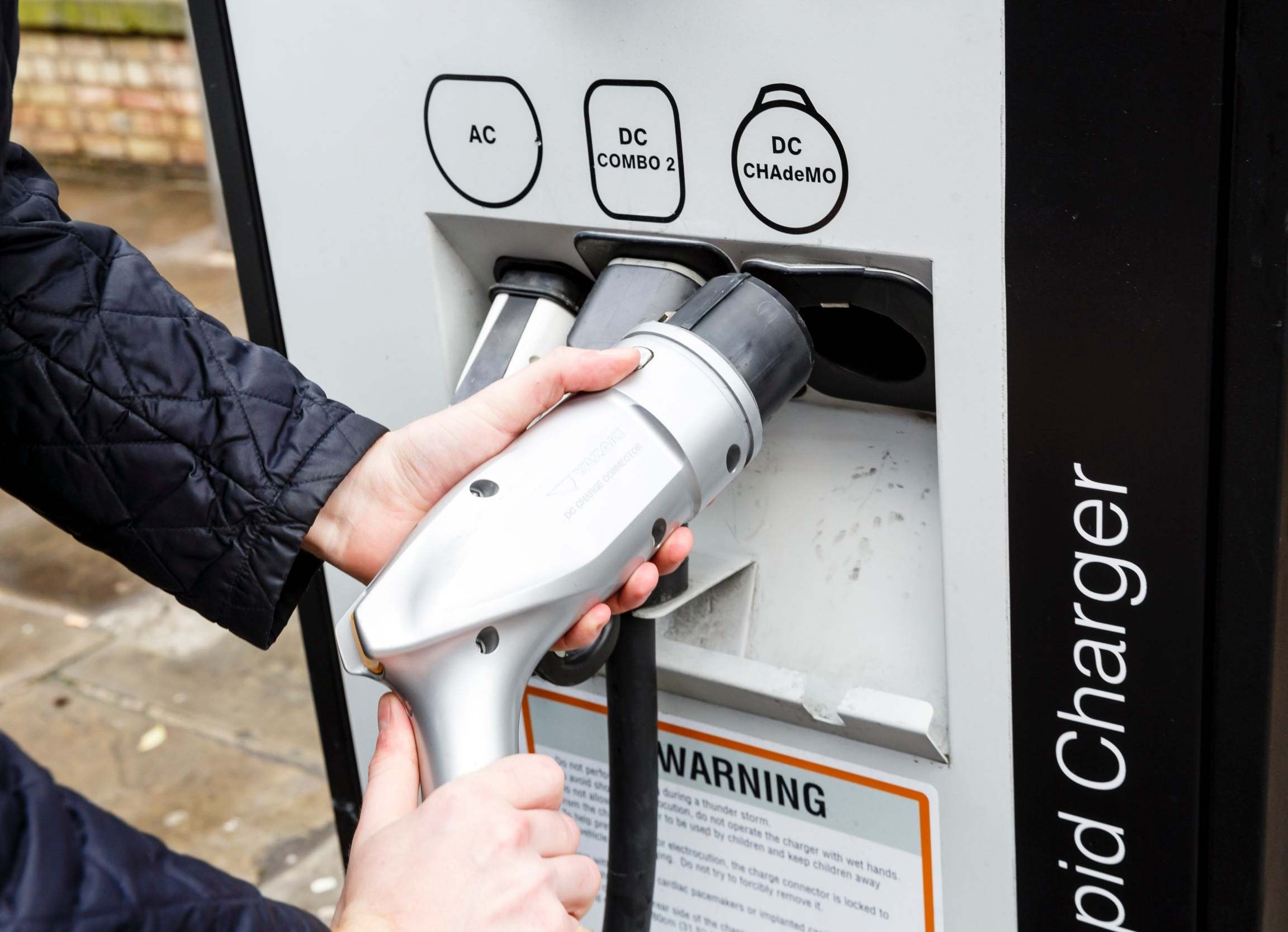Don’t believe the hype – electric cars are not the saviours of humanity
Buying just one electric car would produce more carbon dioxide than 15 and a half years of electricity usage for the average UK family home, writes Donnachadh McCarthy


The second most climate-destructive thing anyone is likely to do this year is to buy a new electric vehicle (EV).
A new report, published last week in the journal Nature Sustainability (NS), estimates that the manufacture of the average electric car produces nearly 12 tons of carbon emissions. To put that in context, buying one electric car would mean producing more carbon dioxide (CO2) than 15 and a half years of electricity usage for the average UK family home. Yes, you would have to turn off all the lights, fridges, freezers, TVs, electric-heaters, chargers, washing machines, dryers etc for more than 15 years before you would have saved enough carbon to justify buying a new electric car.
The report estimated that the embedded carbon in EVs was 30 per cent more on average globally than for the equivalent sized internal-combustion engine (ICE) car. But it did report that in the UK if you include the electricity used to power the EV, then over its lifetime, it will save just about 30 per cent in total combined carbon emissions for both manufacture and usage. That is why the worst thing most people are likely to do climatically this year is buy a new fossil-fuelled car, as they are even worse than EVs.
For too long the government, the media and too many corporate environmentalists have focused on the comparative carbon savings between running an EV and running an ICE car. But this report reveals that shockingly, by 2050, the manufacture of EVs could cause up to 9 per cent of total global carbon emissions, before they are even run for one kilometre.
There are over 1.5 billion motor vehicles on the planet today. This is estimated to double by 2040. To replace even today’s global fleet, at an average of 11.7 tons per vehicle, would emit a staggering 17.5 gigatons of CO2.
In 2018, one International Panel on Climate Change Report estimate was that humanity only had a maximum carbon budget of 26 gigatons to have a two-thirds chance of not breaking the 1.5C temperature rise.
Are we really going to allow the motor industry to gobble up a huge chunk of our remaining carbon budget?
The NS report also highlights the obvious fact that bigger luxury cars use more energy than economy sized cars. A luxury hybrid in the UK will produce significantly more emissions, at 144g/km, than an economy petrol (110g/km), compressed natural gas (85g/km) or advanced diesel cars (90g/km). Indeed, the report found that efficient petrol cars outperform average EVs in 43 per cent of current global markets.
The publication of the NS report last week generated a plethora of positive media headlines for EVs. But new EVs, while usually less dirty than equivalent sized ICE cars, are still terribly a part of the dirty brown economy – an economy that is taking humanity and nature to the edge of extinction.
It means that for all urban transport other than for disabled people, we need to ban all cars (both EV and ICE cars) and switch to walking, cycling, pedicabs and renewably sourced electric or hydrogen-powered public transport.
Renewable-powered EVs in small numbers will be justifiable for some rural communities. But they need to be largely reserved for public transport, emergency vehicles, delivery trucks and other essential motorised vehicles. Electric bikes can facilitate longer journeys of up to about 20km.
The good news is that not only will this slash carbon emissions from transport, one of the largest global sources of carbon emissions, but it will also result in far healthier populations, drastically reduced air pollution – as we are seeing in the current Covid-19 emergency – more peaceful streets and safer neighbourhoods for children to play.
Huge amounts of public open space hijacked by car-parking can be transformed into edible green landscapes, providing not only beauty but local organic food production, which also needs to dominate global food production in this climate and ecological crisis.
EVs are a desperate attempt by the motor lobby to continue business as usual. It is time to call it out for the lie that it is.
It is time to finally commit to local transport solutions that save humanity, not destroy it.
Join our commenting forum
Join thought-provoking conversations, follow other Independent readers and see their replies
Comments